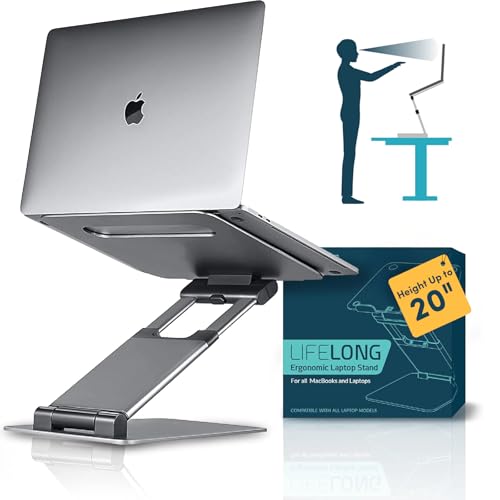We may earn a commission if you click on a product link and make a purchase at no additional cost to you. For more information, please see our disclosure policy.
Last updated: October 6, 2025
Key Takeaways
- Reality Check: Many aspire to entrepreneurship; few succeed. Understand low odds, then pursue deliberately with discipline, adaptability, and measured expectations.
- Risk & Money: Assess risk tolerance and build runway.
Budget for months without profits, managedebt carefully, and protect essentials before investing aggressively. - Market & Differentiation: Validate market demand and differentiation. Solve a specific problem or serve an underserved locality; otherwise, expect slow traction and brutal competition.
- Foundation & Focus: Start with a sustainable core offering—your “great cookie.” Expand only after consistent quality, repeatable delivery, and unit economics prove long-term viability.
- Tools &
Timeline : Use current tools and data, not outdated habits. Expect delayed profitability;plan milestones, contingency options, and resilience to navigate inevitable surprises.
Many people have ideas for a new business and dream of a day when they might work for themselves. But for most people, this dream never materializes. And for the remaining intrepid entrepreneurs who start a business, there is no guarantee of success. Let’s compare entrepreneurship to something not at all related: football. For every player who makes the peewee football
The same is true for entrepreneurs. While many are theoretically capable of starting a successful business, few will create one that lasts, if at all. This is not to say that entrepreneurship is not a good path to follow. On the contrary, it can be one of the best decisions you ever make in your life. But everyone considering starting a business should continue to read this article.
This book is a must-read for entrepreneurs and business leaders looking to launch a successful startup.
Starting a New Business
- Assess Your Risk Tolerance: Consider your comfort level with taking risks. Starting a business involves uncertainty and challenges, and being risk-averse might impact your decision-making and stress levels.
- Evaluate Your Financial Stability: Analyze Your Financial Situation. Starting a business often requires upfront investment and may not generate immediate profit, so ensure you have sufficient resources or backup plans.
- Identify Your Motivation: Understand why you want to start a business. Whether it’s passion, flexibility, or financial goals, knowing your motivation helps maintain focus during tough times.
- Analyze Market Demand: Research to determine if there’s a demand for your product or service. A viable business idea meets a market need or solves a specific problem for customers.
- Consider Your
Skills and Experience: Reflect on whether yourskills and experience align with your business idea. This alignment can significantly influence your business‘s success. - Understand the Time Commitment: Starting and running a business requires a significant amount of time and effort. Consider if you can commit to long hours, especially in the early stages.
- Seek Advice from Entrepreneurs: Consult with experienced entrepreneurs for valuable insights. They can provide helpful advice, potential pitfalls to avoid, and encouragement on their journey.
- Plan for Work-Life Balance: Consider how starting a business will impact your personal life. Maintaining a healthy work-life balance is essential for achieving long-term success and overall well-being.
- Assess Business Sustainability: Evaluate the long-term sustainability of your business idea. Consider economic, environmental, and social factors that could affect its future viability.
- Prepare for Challenges: Anticipate and
plan for potential challenges. Having a contingencyplan and resilience can help navigate the unpredictable nature of business.
Start Your Own Business will guide them through the first three years of business. They’ll gain the know-how of more than 30 years of collective advice from those who’ve come before them
Do You Have a Basic, Sustainable Idea?
A good business needs to start as a functional, basic idea. Let’s say you want to start a baked goods company. First, you should be able to make, package, and ship a great cookie. If you can create a cookie that, theoretically, could sustain your business indefinitely, then your idea is a good one. From the cookie foundation, you can build into other baked goods, expanding your business model. But you’ve started from a solid platform. Many businesses do not start from a sustainable model, and it’s challenging for them to grow from that point.
Do You Have a Unique Business Idea?
For a business to succeed, it must either offer something that other companies do not, or it must conduct its business in a way that exceeds the professionalism of others. Redundant companies do not do well. However, you may have a conventional idea that is not represented by any other local business. Take the average delivery pizza place, for example. It’s not that there aren’t thousands of other ones. But if your pizza place opens in an area that doesn’t have competition, your conventional restaurant will have a corner on the market.
In The 1-Page Marketing Plan, serial entrepreneur and rebellious marketer Allan Dib reveals a marketing implementation breakthrough that makes creating a marketing plan simple and fast. It’s literally a single page, divided up into nine squares
Do You Understand the Tools of Your Modern Industry?
Whether or not you’ve been to business school, you should understand how people in your business are conducting business today, not two, five, or ten years ago. Today, numerous new technologies exist that continually revolutionize industries. These revolutions happen in cycles measured in months, not years or decades. So pay attention.
“Many new business owners underestimate the time it will take to make a profit. Some spend most of their capital on renting commercial space, hiring employees, and buying office furniture. Realize that it will take some time for your business to get in the black. Think long-term investment rather than instant gratification.” – Mistakes Not to Make When Starting a Business
There are many other questions that one should ask oneself before starting a business, but these are three of the most fundamental. From here, it should be easy to see what other considerations must be made before beginning a (successful)
Being an online entrepreneur means more than just building a website&;and this book breaks down everything you need to know to be successful.
Next Steps
- Audit Finances: Calculate monthly burn, save 6–12 months’
expenses , separate business accounts, and confirminsurance coverage before committing. - Validate Demand: Interview ten target customers, map problems, size willingness to pay, and run a landing page with a sign-up goal to test.
- Define MVP & Milestones: Outline a minimal feature set, estimate unit economics, schedule a four-week development cycle, and establish measurable launch metrics for retention and revenue.
- Manage Risk & Compliance: Register the entity, obtain required licenses, set up bookkeeping, implement secure backups, and draft contingency actions for supplier failure or sudden demand spikes.
Final Words
Taking the first step is easier when you translate aspirations into concrete actions. Prioritize financial readiness, test assumptions with real prospects, and design a focused initial offering that proves value quickly. Track a handful of key metrics, iterate deliberately, and safeguard the downside with proper compliance and backups. Consistency beats bursts of effort; schedule weekly reviews to evaluate progress and adjust targets as needed. With clear milestones, verified demand, and disciplined execution, momentum grows and risk becomes manageable.
Additional Resources
-
 Get your Office supplies and more
Get your Office supplies and moreOffice Supplies. Art & Crafting, Bags & Luggage, Basic Supplies, Binders & Accessories, Business Forms, Tax Forms & Recordkeeping, Calendars & Planners and more
We earn a commission if you click this link and make a purchase at no additional cost to you.
-

$12.99$9.99Learn MoreIn this book, you will discover:
- The top digital business trends to watch – these will completely change the world of online marketing within the next decade
- A simple method for finding profitable niche markets for free
- The most effective pricing strategies for online businesses
We earn a commission if you click this link and make a purchase at no additional cost to you.
03/02/2026 06:01 am GMT -
 Learn More
Learn MoreXero gives you real-time cash-flow visibility, seamless bank integration, and automated workflows—all in one cloud platform designed for small business growth. Start your free trial today and see how smart accounting frees your focus.
We earn a commission if you click this link and make a purchase at no additional cost to you.
-
Learn More
FedEx offers high-quality printing, express delivery and copies.
We earn a commission if you click this link and make a purchase at no additional cost to you.
-
 $11.99Learn More
$11.99Learn MoreUnleash your potential with this companion that goes beyond ordinary notebooks. The Brainstorming Journal and Workbook is not just basic pages bound together.
We earn a commission if you click this link and make a purchase at no additional cost to you.
03/02/2026 08:02 am GMT -

$19.95$14.93Learn MoreIn The 1-Page Marketing Plan, serial entrepreneur and rebellious marketer Allan Dib reveals a marketing implementation breakthrough that makes creating a marketing plan simple and fast. It’s literally a single page, divided up into nine squares
We earn a commission if you click this link and make a purchase at no additional cost to you.
03/02/2026 06:01 am GMT -
Learn More
Create stunning timelines and Gantt charts in minutes with Office Timeline—perfect for project managers, executives, and teams who need to present plans visually. Whether you're using PowerPoint or working online, Office Timeline turns complex data into clear, professional visuals that impress.
We earn a commission if you click this link and make a purchase at no additional cost to you.
-
 Learn More
Learn MoreEasy-to-Use Accounting & Bookkeeping Features. Invoicing and Accounting Tools Built for Any Sized Business
We earn a commission if you click this link and make a purchase at no additional cost to you.
-

$19.95$17.25Lean MoreDesk Yoga offers approachable stretching and wellness practices that are easy to incorporate into your workday routine, wherever your office might be.
We earn a commission if you click this link and make a purchase at no additional cost to you.
03/02/2026 07:03 am GMT -
 $39.97Learn More
$39.97Learn MoreA multifunctional desk organizer that raises your monitor for better ergonomics while keeping everything within reach, with a built-in phone/tablet holder, customizable compartments, and side caddies for extra storage.
We earn a commission if you click this link and make a purchase at no additional cost to you.
03/02/2026 08:04 pm GMT -
 $25.99Learn More
$25.99Learn MoreA compact glass desktop whiteboard that fits between your keyboard and monitor, offering a smooth dry-erase surface, hidden storage and device trays, and all included accessories to keep notes, tools, and your workspace neatly organized.
We earn a commission if you click this link and make a purchase at no additional cost to you.
03/02/2026 08:01 pm GMT -
 $110.00Learn More
$110.00Learn More9-Piece Luxury Desk Organizer with Desk Pad, Name Plate, Pen Set & Office Accessories (Wood & Leather Design) : Office Products
We earn a commission if you click this link and make a purchase at no additional cost to you.
03/02/2026 08:03 pm GMT -
 $24.99Learn More
$24.99Learn MoreSlim Portfolio Folio Organizer Holder for Letter Legal A4 Note Pads Notebooks for Men Women Refillable Business Leather Portfolio Binder, Dark...
We earn a commission if you click this link and make a purchase at no additional cost to you.
03/03/2026 02:03 am GMT -
 $69.99Learn More
$69.99Learn MoreLifelong Ergonomic Adjustable Laptop Stand for Desk - Height Up to 20" Portable Computer Laptop Riser Holder, Fits All MacBook Air & 10 15 17 Inches Laptops, Back to School Gift for Men &...
We earn a commission if you click this link and make a purchase at no additional cost to you.
03/02/2026 10:00 pm GMT -

$24.99$18.99Learn MoreHP 280 Silent Wireless Mouse - Ergonomic, Right-Handed Design - 2.4GHz USB Wireless Connection - Multi-Surface Technology, 1600 DPI Optical Sensor - Win, Chrome, Mac OS - Up to 18-Month Ba...
We earn a commission if you click this link and make a purchase at no additional cost to you.
03/02/2026 07:03 am GMT -

$28.99$18.49Learn MoreCrossing the Chasm explains how companies can bridge the critical gap between early adopters and the mainstream market, offering updated strategies and real-world examples to successfully scale high-tech products in today’s digital landscape.
We earn a commission if you click this link and make a purchase at no additional cost to you.
03/02/2026 10:00 pm GMT -

$1,199.00$1,049.00Learn MoreMacBook Air with the M4 chip delivers blazing performance, Apple Intelligence, up to 18 hours of battery life, a stunning 15.3-inch Liquid Retina display, and powerful connectivity in an ultra-portable design.
We earn a commission if you click this link and make a purchase at no additional cost to you.
03/02/2026 07:00 pm GMT
Mark Fiebert is a former finance executive who hired and managed dozens of professionals during his 30-plus-year career. He now shares expert job search, resume, and career advice on CareerAlley.com.





